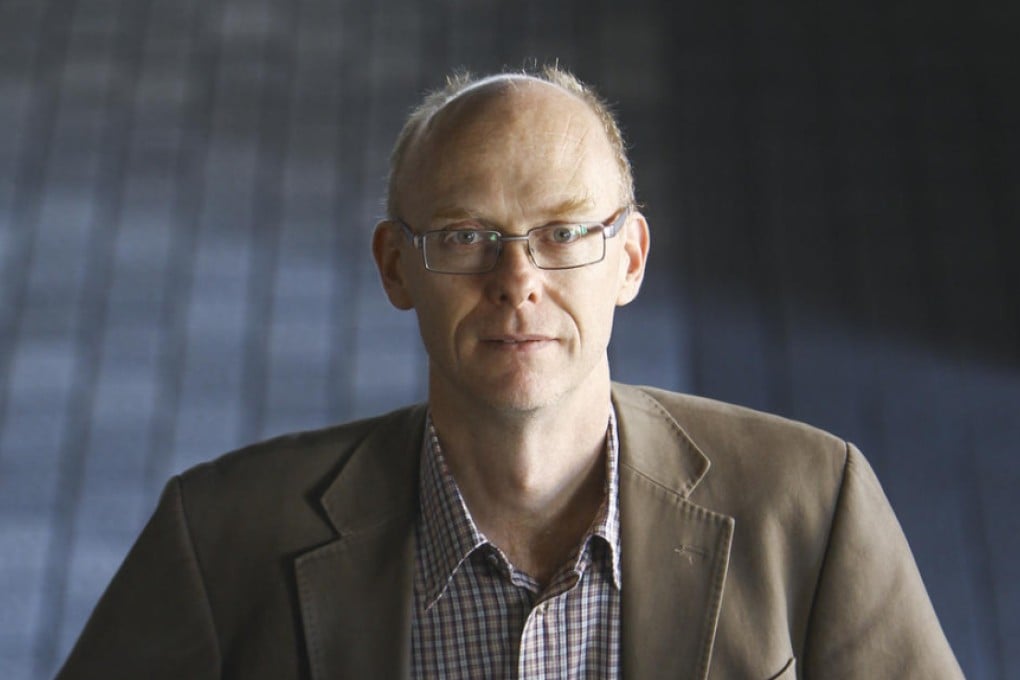My life: Robert Bickers
The China historian and author tells Stuart Heaver how Hong Kong coloured his young self and put him on an Easterly path

T I am obsessed with lighthouses. They are things of beauty and metaphors for so many things. Type the word "lighthouse" into Google and you see all sorts of results. I am just finishing a book called Shine a Light on Me, based on research at the Second Historical Archives of China, in Nanjing, where they have 60,000 documents from the Maritime Customs. The lighthouse project in China was massive and combined the most advanced technology of its day with the least educated Europeans who ever worked on the China coast. These men were isolated on the south China coast for years, so they tended to get into trouble, and this is a great source of stories.
The book looks at the mystery of the Breaker Point incident, in 1932, when two lighthouse keepers, one British and one Russian, and their families were kidnapped. The two men never returned and we have to assume they were killed. I am trying to track down the families of the Englishman, to see if they can shed any light on the mystery. He was called Charles Hugh Edwards and had eight sons with his Chinese wife, and some of them moved to Hong Kong. Guy Spencer Edwards was born in 1917 and, I think, attended the Diocesan Boys' School, and Andrew Ray Edwards was born in 1920 and may have been in the Hong Kong Police. Their Chinese surname is a very unusual one, Yee. Edwards was himself born in Xiamen, to a British father from Singapore. Xiamen was full of expatriates just passing through, like here, but many families were on the China coast for two or three generations and had little or no idea about Europe.
I always ask this of people I meet. The personal stories in these family histories just fascinate me. People often contact me now about their family ties on the China coast and it can turn into serious historical research. Britain was embedded in the China coast.
My dad was a flight sergeant in the Royal Air Force and he did a tour in Hong Kong. We lived in Sunderland Road (in Kowloon Tong), just south of what is now the PLA barracks. I attended St Andrew's Primary School and remember Hong Kong then as noisy, warm and colourful - and it stank. It was gorgeous. My life as a three-year-old boy had suddenly turned from monochrome to colour. I have very fond memories of Hong Kong as a child. We returned to County Durham (in northeast England) in the middle of a miners' strike - I thought it was awful. I guess the link to studying Chinese at SOAS (the London School of Oriental and African Studies) is not coincidental, given my early days in Hong Kong. I remember as a schoolboy in England telling my friends I wanted to join the Hong Kong Police, so the seeds of interest in China must have been sown here. I love the place. There is still a tremendous buzz and energy.
I started a degree in Mandarin at SOAS and realised I was more interested in Chinese history than Chinese literature. No one else was interested in Sino-British relations of the 19th century. No one spoke Mandarin in London when I was studying there, either. There are now 10,000 Chinese students in the UK. There was lots of research at the time into Chinese literature and civilisation but the country itself was closed to the West. My career has grown as access to China has increased. When I applied for a job in the history department of the University of Bristol and told them the area of research I was interested in, one of the people on the interview panel said, "You will be very lonely you know - no one here works on China." I was the only person at the university who ever went to China; now our students take their gap years there. I was considered to be an exotic but, alas, no more.
My favourite writer on China is Peter Hessler (author of Oracle Bones). There are lots more books on China now … but does that mean we really understand China better (in the West)? I am not so sure.